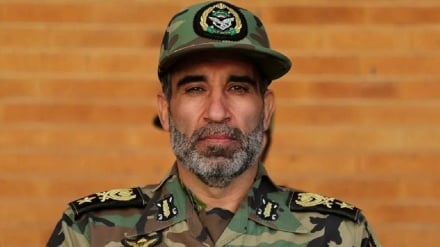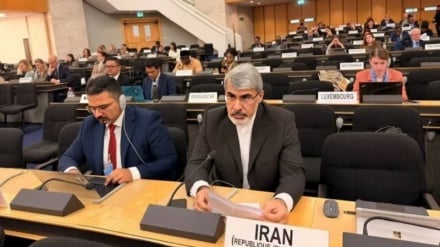Implications of the Indian strike on Pakistan
The recent aerial confrontation between the Subcontinent’s arch rivals that led to the downing of an Indian fighter plane that bombed Pakistani soil, risks wide scale military confrontation if tempers do not cool down in Islamabad and New Delhi.
Here we present you an analysis by Indian journalist Geeta Mohan for India Today, titled: “Implications of the Indian Strike on Pakistan”.
Response from Pakistan might not be in the Kashmir sector but could move to other states on India’s western border. The action by India would have bilateral, regional and international ramifications.
India's bordering countries that have suffered at the hands of terrorism emanating from Pakistan will mostly welcome the move.
Iran will be keenly observing the developments that will follow in the coming days as it has also been suffering from acts of terrorism from Pakistan’s soil.
New Delhi claimed to have “avenged” the death of the 42 Indian soldiers by allegedly taking out an entire terror camp in Balakot deep inside Pakistani territory – while reports from Islamabad by independent and foreign journalists indicate that there were no casualties, except for an old villager who suffered facial wounds due to falling trees since the Indian aircraft bombed only an uninhabited forest area.
Pakistan is calling it a violation of its territorial integrity, while India maintains that it only acted on actionable intelligence of further plans to carry out terrorist attacks in India which were being hatched by the Jaish-e-Mohammad in the Balakot camp.
Whatever the results of the bombing on the eve of the general elections in India which the ruling party is determined to exploit, even as the opposition had dismissed it as a gimmick and is calling for concrete proofs to show the alleged dead bodies of terrorists, the action by India would have bilateral, regional and international ramifications.
Bilaterally speaking, while the initial response of Pakistan seemed rattled and confused, Islamabad continued to maintain that no real damage was done.
What is interesting to see is the multi-pronged response from Pakistan on an ingression by India which they claim was caught in time with no casualty. Three cabinet ministers briefed the media, Prime Minister Imran Khan held an emergency meeting, not to mention the predictable media blitzkrieg to counter India's claims.
Expect a response from Pakistan on one count alone, i.e, Pakistan's territorial sovereignty violated by India. Islamabad will start its own outreach with the international community to explain why it is important to respond to such an "audacious" move by India.
As for the regional impact, India's bordering countries that have suffered at the hands of terrorism emanating from Pakistan will mostly welcome the move. Afghanistan for a very long time has been asking India to be bold with its response to Pakistan.
The Islamic Republic of Iran, which is the frequent target of terrorist attacks from Pakistani soil, will be keenly observing the developments that will follow in the coming days.
China, though, will be worried with the escalation of tensions between the two nations. While Pakistan will always remain priority for China, Xi and Modi have also found common ground on the economic front.
The Organisation of Islamic Cooperation (OIC), an important bloc of the Muslim nations, has already “condemned” India's action calling it a “violation” against an OIC founding member state. This comes days before External Affairs Minister Sushma Swaraj attended the OIC foreign ministerial conference in Abu Dhabi as a “guest”, while her Pakistani counterpart, Shah Mahmoud Qureshi boycotted the meet in protest.
The Western nations for now have come out and endorsed India's action for the purpose of “self defence”. But this would be acceptable only if it is not a regular occurrence. Many have asked what happens if Pakistan retaliates?
Will India strike back again? For western nations invested in the Afghan-Pakistan region, Islamabad will use its old ploy and signal their lack of resources to help out in the peace efforts since they would be busy on their eastern front with India.
They have done it in the past as pressure tactics with the US. A repeat will not be a surprise but the timing could have grave consequences.
At a time when the US is involved in the Taliban talks and is looking at withdrawal of troops from Afghanistan, Pakistan becomes a key player; and any diversion from the objective could make Washington rethink its support for India.
Meanwhile, the Indian opposition parties have expressed skepticism about the air strike. Congress MP Ajay Singh questioned Prime Minister Narendra Modi's claim that Jaish camp in Balakot was destroyed, referring to the foreign media reports that there was no damage due to the airstrikes in Pakistan.
He said: “A few days ago, bombs were dropped on Pakistan. He [Modi] said that everything in Balakot was destroyed. New York Times reported that there was no damage due to air strikes. If not today, in the next 10 days, the whole sequence of events will be exposed.”
Navjot Singh Sidhu, the Punjab minister, who left the BJP to join the Congress, asked in a tweet if India's counter-terrorism operation in Pakistan had indeed killed hundreds, joining a growing chorus of skepticism in opposition ranks.
He said: “Were you uprooting terrorists or trees? Was it an election gimmick?”
AS/SS


